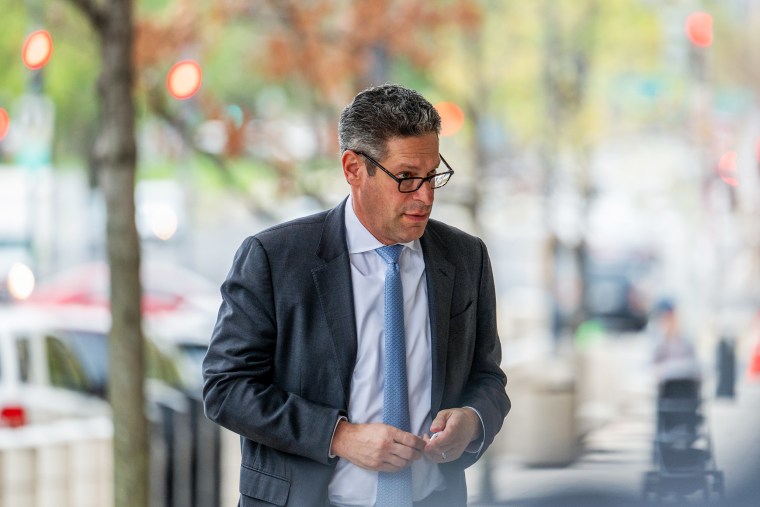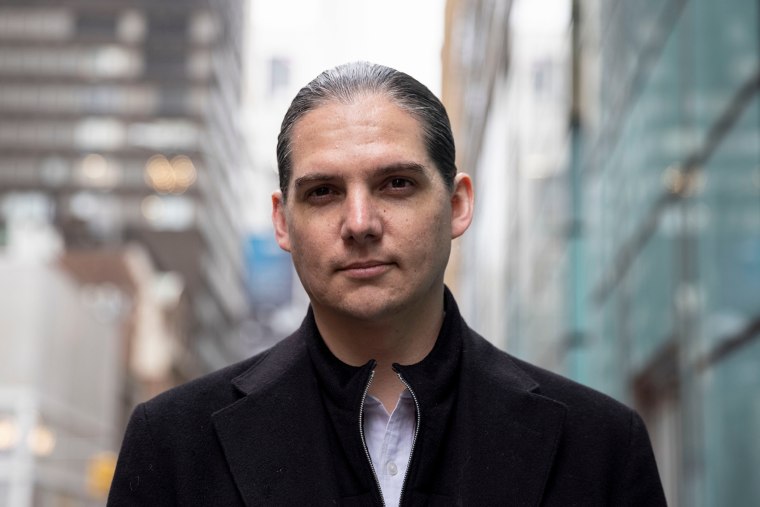Meta executive apologizes to conservative anti-DEI activist for AI responses
April 30, 2025
A top executive at tech giant Meta has issued a public apology to conservative influencer Robby Starbuck after Starbuck filed a lawsuit alleging that Meta’s artificial intelligence chatbot produced responses containing false and defamatory information about him.
Joel Kaplan, Meta’s chief global affairs officer, told Starbuck in a post on X Tuesday night that he was personally involved with trying to fix the situation.
“Robby — I watched your video — this is unacceptable. This is clearly not how our AI should operate,” Kaplan wrote on X, which is one of Meta’s competitors. He referred to a 20-minute video in which Starbuck laid out his claims, including that Meta’s AI falsely associated him with the Jan. 6 Capitol riot and the QAnon conspiracy theory.
“We’re sorry for the results it shared about you and that the fix we put in place didn’t address the underlying problem,” Kaplan continued. “I’m working now with our product team to understand how this happened and explore potential solutions.”
It’s unusual for a C-suite corporate executive to apologize so publicly and so quickly to one individual, let alone someone who had just sued his company. Kaplan’s apology came a few hours after Starbuck sued Meta, the owner of Instagram and Facebook, in state court in Delaware. In 2021, Adam Mosseri, the Meta executive in charge of Instagram, apologized for a software bug that had deleted posts by Indigenous activists, and last year he apologized for the company taking action against a transgender user. Lower-level staff also sometimes apologize for Meta errors, and last year Kaplan admitted two mistakes by the company without issuing an apology.

But Starbuck’s claims and his stature are also unusual. A rising figure in right-wing media, Starbuck says that Meta’s AI invented false information about him seemingly out of thin air — a problem that he says undermines the value of Meta’s AI technology.
Meta has become increasingly attentive to the concerns of American conservatives over the past year, after President Donald Trump won the Republican nomination and then the White House. Meta CEO Mark Zuckerberg pivoted the company to align more closely with Trump, including by promoting Kaplan, a longtime Republican operative, to be Meta’s head of lobbying.
Starbuck said the apology from Kaplan was not enough. In a statement to NBC News on Wednesday, Starbuck said he wanted a public apology from Zuckerberg, changes to Meta’s AI systems and compensation for the damages he says Meta had caused him.
“At the end of the day these lies harmed me, my wife and my kids,” Starbuck said. “This put them in danger. I want to ensure that never happens to anyone else no matter what their political beliefs are.”
Asked for a response to the lawsuit Wednesday, a Meta spokesperson pointed to Kaplan’s apology.
Starbuck, a former music video producer based in Tennessee, has ridden to prominence in the conservative media ecosystem in recent years with videos attacking diversity, equity and inclusion programs (DEI) at major corporations, including Walmart. He sought a House seat as a Republican in 2022.
In his lawsuit, Starbuck says he learned that Meta’s AI chatbot was saying false things about him last August. That’s when a motorcycle dealership in Vermont posted a screenshot on X of Meta’s chatbot saying that Starbuck was at the Jan. 6, 2021, riot at the U.S. Capitol and had been “linked to” the QAnon conspiracy theory — two claims that Starbuck says are not true. He says he was in Tennessee the day of the Capitol riot and that he’s a longtime critic of QAnon.
Starbuck says in the lawsuit that he contacted Meta and its lawyers about the claims. According to the suit, a Meta lawyer responded to Starbuck’s lawyer last August by email, saying in part: “Meta takes the assertions set forth in your letter seriously, and an investigation into them is underway.”

But Meta ultimately did not implement changes or take responsibility over the ensuing months, the lawsuit alleges. Instead, the suit says, the problem got worse as the chatbot produced additional serious allegations about him.
The lawsuit claims defamation. It asks for $5 million in general damages plus unspecified punitive damages and an injunction against future defamatory statements by Meta about Starbuck. The lawsuit was first reported by The Wall Street Journal.
Internet companies have for decades enjoyed a kind of shield against many defamation lawsuits, thanks to a 1996 law commonly known as Section 230. Legal experts, though, say it’s unclear whether that law applies to output from generative AI software, and courts have not yet weighed in.
It’s unclear how Meta’s chatbot came up with its information about Starbuck. According to the lawsuit, Starbuck searched for potential sources of information that might have shaped Meta’s AI but came up empty. On Wednesday, according to checks by NBC News, Meta’s chatbot declined to talk about Starbuck at all, responding to questions about him with: “Sorry, I can’t help you with this request right now. Is there anything else I can help you with?”
So-called hallucinations, in which AI chatbots give unexpected and incorrect responses to questions, are a notorious and somewhat mysterious feature of AI software.
Starbuck filed his lawsuit at an especially inconvenient moment for Meta’s ambitious AI plans. Tuesday was LlamaCon, a conference for AI developers hosted by Meta at its corporate headquarters in Menlo Park, California. Zuckerberg gave a keynote address, and the company announced several updates to its AI model, called Llama, which competes with OpenAI’s ChatGPT, Google’s Gemini and others.
Kaplan is also at the center of several allegations of misconduct in a recent bestselling book by a former Facebook employee, Sarah Wynn-Williams. Meta has said the book includes “false accusations about our executives,” and that an internal investigation cleared Kaplan of wrongdoing in 2017. Wynn-Williams testified about Meta’s record in China before a Senate subcommittee this month, accusing Zuckerberg, whom she worked with directly, of being dishonest about his past willingness to strike compromises with the Chinese government.
Search
RECENT PRESS RELEASES
Related Post




